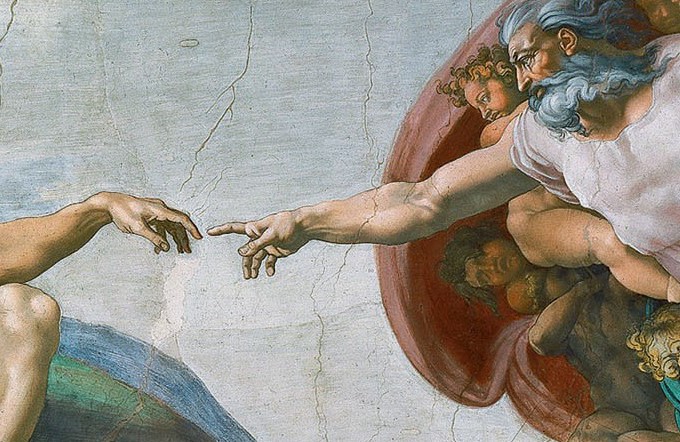Pygmy.
The name evokes varied images, not all favorable. In fact, Pygmies have not always esteemed themselves.
That’s why a recent story about a Pygmy community in the Congo is so compelling. They came to see for the first time what it means to be made in the image of God.
The story comes from our friends at Reconciled World. They were in the Congo offering their Truth-Centered Transformation (TCT) training, a series with proven results in SE Asia that is now catching on in many places.
A number of national church leaders had assembled for a TCT session in Kampala, Uganda. They were relating their experiences of encouraging churches and pastors “to apply God’s truth to their lives and to demonstrate His love to their communities.”
One of the leaders spoke of a Pygmy tribe that “was impacted by the idea of being made in the image of God.”
 Most Pygmy communities of northern Congo are migratory, traditional hunters and gatherers who have lived in the area for generations. More recently, Bantu peoples have moved into the area. The Pygmy migratory behavior left their traditional lands vulnerable to these newcomers, so that much of the region is now under Bantu control.
Most Pygmy communities of northern Congo are migratory, traditional hunters and gatherers who have lived in the area for generations. More recently, Bantu peoples have moved into the area. The Pygmy migratory behavior left their traditional lands vulnerable to these newcomers, so that much of the region is now under Bantu control.
Pygmy people have been regarded as subhuman
Bantu tribes generally view Pygmy tribes as subhuman. In fact, Pygmies have long seen themselves the same way. But on some of them, the light of truth recently dawned.
As they studied Genesis 1:26-27 they reflected on what it meant for them as a people. Although they always referred to others as mutu (people), they never referred to themselves by that word. They had always believed themselves to be subhuman – something less than mutu. For that reason they believed they were only capable of doing work for others and never on their own. But through the TCT materials they came to believe that they were capable human beings made in the image of God.
Now both Bantu Christians and Pygmy Christians are confronting that lie and realizing that all people are humans made in God’s image. One leader reports, “As far as we know for the first time in history, some Bantus and some Pygmies had communion together.”
There’s more.
Already they have begun trying to grow their own crops, and are hoping to use the extra profits to build more stable homes. Through the power of God’s truth they no longer see themselves as only capable of working in the fields of others, but now are learning to embrace their God-given identity.
Only the worldview of the Bible brings to people the dignity of imago Dei (image of God) creation. The Founder of Christianity assured His followers, “If you abide in my word, you are truly my disciples, and you will know the truth, and the truth will set you free” John 8:31-32 ESV.
No other belief system—certainly not materialism—can deliver such broad, sweeping freedom.
Nancy Pearcey is professor and scholar-in-residence at Houston Baptist University. In her recent book, Finding Truth, Ms. Pearcey contrasts the freedom of truth with the chains of materialism.
G.K. Chesterton wagers that secularists reject Christianity not because it is a bad theory but because it seems “too good to be true.” For the materialist, “the universe is a universal prison.” It shackles humans in an interlocking chain of cause and effect. Thus when a secularist encounters the biblical view, “it is like believing in fairyland to believe in such freedom.”
If secularists find Christianity “incredible,” Chesterton concludes, that is because it is so incredibly positive in affirming a high view of human freedom and dignity.[1]
The Bible doesn’t completely explain all that “image of God” entails, but whatever it means, it certainly sets humans apart from the rest of creation.
That humanity by creation uniquely bears the image of God is a fundamental biblical doctrine – as is also that this image is sullied by sin and that it is restored by divine salvation. Humanity’s nature and destiny are interwoven with this foundational fact, and speculative philosophies inevitably strike at it when they degrade humanity to animality or otherwise distort the personality.[2]
Those “speculative philosophies” must give way to truth. In fact, faithful Christ followers are “destroying speculations and every lofty thing raised up against the knowledge of God … taking every thought captive to the obedience of Christ,” 2 Corinthians 10:5 NAU.
Now some Pygmies in the Congo have come to grips with this powerful truth. Praise be to God, glory to Jesus Christ.
- Gary Brumbelow
[1] Nancy Pearcey, Finding Truth, p. 166
[2] Evangelical Dictionary of Theology, p. 591







2 Comments
Beth Wood
March 10, 2016 - 4:35 pmThanks so much for this great article — it so clearly sets out the need to target thoughts to bring transformation.
admin
March 10, 2016 - 4:42 pmThanks, Beth, for reading and responding!
Gary Brumbelow